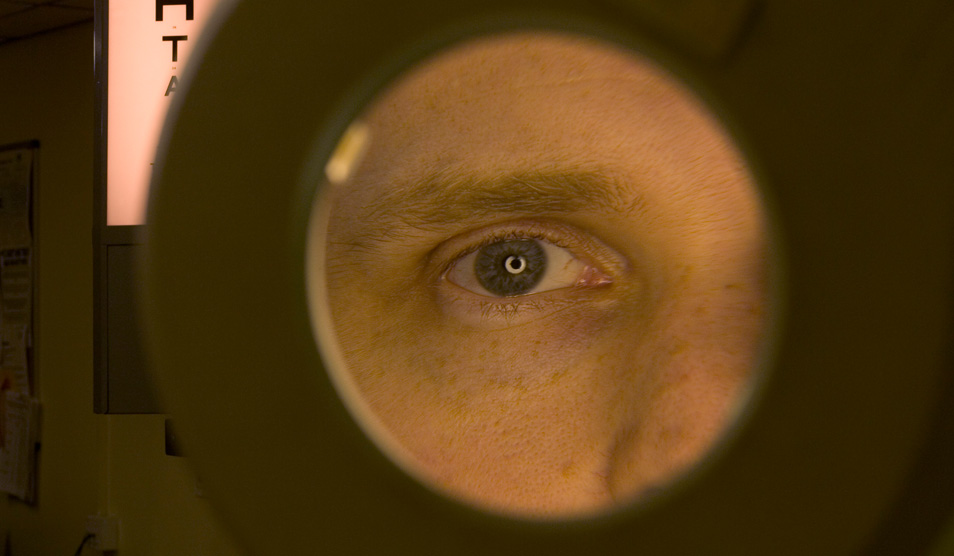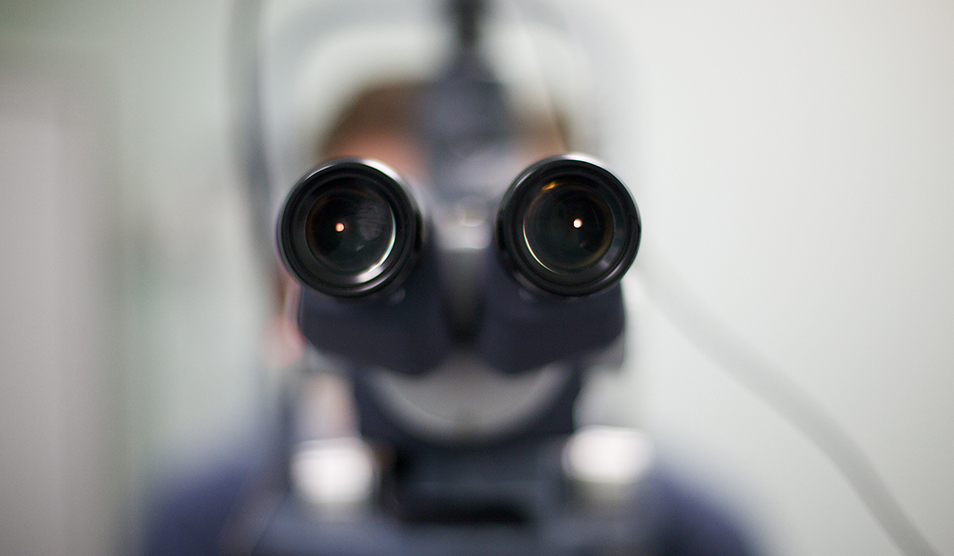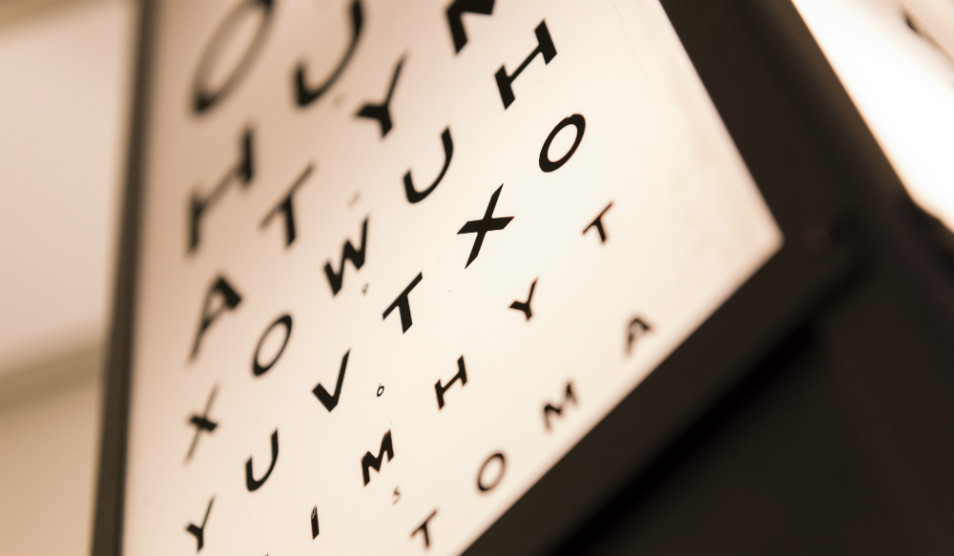Ophthalmology
Contact
- Outpatients appointments
- 020 3312 3209
Visitor Information
Translation help:
To translate this page into your preferred language, click the Google Translate icon in the top-right menu and select your desired language.
Although the eye is a small organ, it is very complex and additional expertise is required to cover the many diseases and problems that can affect each part of the eye.
Consultants in our ophthalmology service have sub-specialty expertise that cover every part of the eye and along with our ophthalmic trained nurses, we aim to offer the very best ophthalmic care possible.
Our ophthalmology services include:
- Cataract surgery
- Macula/medical retina/diabetic eye care
- Glaucoma
- Cornea
- Oculoplastic/adnexal
- Vitreoretinal (surgical retina)
- Uveitis
- Neuro-ophthalmology
- Ocular motility/eye movement/orthoptics
- Eye casualty/A&E
- Contact lens clinic
- Primary care ophthalmology
- Children's ophthalmology
We usually see new patients in our rapid access clinics and general ophthalmic clinics. We then find the most appropriate sub-specialist clinics to support the complex needs of each person.
The Western Eye and Charing Cross hospitals also serve as tertiary referral centres for the whole of west London and beyond.
Find information about our appointments as well as patient information leaflets about our procedures and treatments on our 'what to expect' page.
Visit our 'What to expect' page
Conditions and treatments
Cataract surgery
We offer a one-stop clinic for cataract surgery where we assess, diagnose and plan surgery all in one appointment. Most of our straightforward patients have cataract surgery within four weeks of referral. Cataract surgeries are performed in our cutting-edge, purpose-built theatre.
Learn more about cataract surgery at the Western Eye and Charing Cross hospitals.
Age related macular degeneration (ARMD) and medical retina service (Macula Suite)
We have specialised facilities that are dedicated to the care of these patients including a minor surgery suite where patients receive their ARMD eye injections.
Other treatments include:
- retinal laser treatment
- photodynamic therapy
- intravitreal drug therapy
- close working with the vitreoretinal service for patients requiring surgical retina input
Patients referred with wet macular degeneration are now seen, diagnosed and treated within two weeks of GP or direct optometrist referral via our dedicated online referral pathways.
Surgical retina and uveitis service
The sub-specialty retinal service covers most if not all pathology related to the retina and vitreous. There are dedicated retinal clinics as well as specific uveitis clinics and vitreoretinal clinics. The surgical vitreoretinal service is the tertiary referral centre for retinal detachments and other retinal conditions requiring surgery for the whole of west London.
Diabetic retinopathy service
As part of the medical retina service, the diagnosis, management and treatment of diabetic retinopathy is also carried out at Charing Cross and Western Eye hospitals.
Glaucoma
The glaucoma service at the Western Eye Hospital is a tertiary referral centre and offers sub-specialty glaucoma clinics with state-of-the-art imaging facilities able to assess and monitor patients in detail.
It is also the only centre in London offering endoscopic cyclophotocoagulation (ECP), an innovative way of treating patients who are not adequately controlled with medical treatment alone.
Cornea and anterior segment
Our cornea and anterior segment service provides sub-specialist clinics and tailored surgical solutions for all problems related to the cornea (front window of the eye), iris and lens. Contemporary surgical techniques including partial thickness corneal transplantation are performed at the Western Eye Hospital.
The corneal service is one of only two centres in London offering modern excimer laser treatment and is a tertiary referral centre for the whole of west London and beyond.
Oculoplastics
Our oculoplastic service provides sub-specialty clinics and surgical management for the whole spectrum of eyelid, tear duct orbital related disorders in both adults and children.
The department pioneered the use of endoscopic endonasal dacryocystorhinostomy (DCR), a minimally invasive surgical technique for symptomatic patients with blocked tear ducts.
Neuro-ophthalmology and ocular motility
Neuro-ophthalmology and adult strabismus clinics are run at both Charing Cross and Western Eye hospitals, working closely with our neurology and neuro-surgical colleagues.
Paediatrics and strabismus
Paediatric ophthalmology clinics are currently held at the St Mary’s Hospital campus with operations if necessary performed at the Western Eye Hospital on dedicated paediatric theatre lists.
Our ophthalmology clinics offer outpatient appointments for a variety of eye conditions, including a one-stop clinic for cataract surgery and clinics for glaucoma and diabetic eye concerns.
Clinics
Specialist ophthalmology clinics at Western Eye Hospital
Address
Western Eye Hospital
153-173 Marylebone Road
London NW1 5QH
Contact information
Phone: 020 3312 3209
Western Eye Hospital ophthalmic consultant secretaries:
Phone: 020 3312 3258 / 3264
Clinics
Please see your clinic letter for your appointment time and location.
- general clinic
- AMD clinic
- glaucoma clinic
- diabetic clinic
- VR clinic
- corneal, anterior segment and cataract clinic
- external eye disease clinic
- adenexal and oculoplastics clinic
- medical retinal clinic
- diabetic screening clinic
- uveitis clinic
- neuro ophthalmology
- motility clinic
- contact lens clinic
- primary care clinic
- orthoptic clinics
- visual fields clinics
Specialist ophthalmology clinics at Charing Cross Hospital
Address
First floor
Charing Cross Hospital
Fulham Palace Road
London W6 8RF
Contact information
Phone: 020 3312 3209
Clinics
- AMD clinic
- glaucoma clinic
- diabetic clinic
- corneal, anterior segment and cataract clinic
- orthoptics
- visual fields clinics
Meet the team
Western Eye Hospital
Ophthalmic consultants
Mr Faisal Ahmed
Mrs Rashmi Akshikar
Mr Christopher Bentley
Mr Mukhtar Bizrah
Mr Philip Bloom
Miss Melanie Corbett
Ms Laura Crawley
Ms Fabiana D'Esposito, ophthalmic genetics
Mr Nizar Din
Miss Tessa Fayers
Ms Veronica Ferguson
Mr Jason Ho
Ms Rajni Jain
Mr Nicholas Lee
Miss Vickie Lee
Dr Eduardo M Normando
Ms Theresa Richardson
Professor Miles Stanford
Mr Niten Vig
Mr Saad Younis
Ms Rahila Zakir
Consultant nurse for ophthalmology
Zena Rodrigues
Lead orthoptist and Adnexal practitioner
Jamie Spofforth
Advanced orthoptist
Rowena McNamara
Specialist orthoptists
Madeline Lawton
Reena Patel
Charing Cross Hospital
Ophthalmic consultants
Mrs Rashmi Akshikar
Mr Mukhtar Bizrah
Mr Nizar Din
Ms Veronica Ferguson
Miss Vickie Lee
Dr Eduardo M Normando
Ms Theresa Richardson
St Mary's Hospital
Ophthalmic consultants
Mrs Rashmi Akshikar
Mr Christopher Bentley
Ms Siobhan Wren
Paediatric optometrists
Farah Aleem
Michelle Hamilton
Patient information
Before your appointment
We aim to see and treat all patients within 18 weeks of referral by their GP.
Your appointment letter will have anything specific you need to bring to your appointment. In general, please bring a list of your medications and a copy of your glasses prescription if available to the appointment. If you wear glasses, please bring them with you to the appointment.
You are welcome to bring a relative, close friend or carer with you to your appointment.
Please note, you may be given eye drops at your appointment to dilate your pupils. As these will blur your vision for up to four hours you are advised to take public transport or to arrange a lift to and from your appointment.
During your appointment
Please note that we are a teaching hospital, so medical students may be present for some appointments. If you do not wish to have them in the room please let the nurse or doctor know and the students will be asked to step outside.
Please be aware our waiting times can vary from 10 minutes to two to three hours depending on the number of staff present and demand on the service. Once called in, your appointment will take 10 to 15 minutes.
Tests are often required prior to seeing the doctor. These can include but are not limited to:
- testing your vision
- measuring the pressure in the eye
- scans of various parts of the eye as applicable
Patient information leaflets
- Adenoviral conjunctivitis
- Adult Squint Surgery leaflet
- Amblyopia and occlusion therapy
- Anterior uveitis (Iritis)
- Atrophine occlusion for children
- Bacterial conjunctivitis
- Blepharitis and eyelid hygiene treatment
- Blepharoplasty
- Blepharospasm (eyelid spasm)
- Blood thinners and oculoplastic surgery
- Botulinum toxin treatment for squint
- Cataract surgery
- Chalazion
- Chlamydial conjunctivitis
- Chronic open angle glaucoma
- Children's eye care service
- Children - squint (strabismus) surgery
- Convergence exercises
- Corneal cross-linking
- Corneal transplants
- Cyclodiode laser treatment for glaucoma
- Dacryocystorhinostomy
- Diabetic retinopathy
- Double vision
- Drainage operation lacrimal bypass using a Lester Jones tube
- Dry eyes
- Ectropion and entropion
- Endophthalmitis
- Epiretinal Membrane (ERM)
- Episcleritis
- Eye preparations that are available to buy over the counter
- Evisceration and enucleation
- Eyelid tumours
- Fitting and wearing your glasses
- Fundus fluorescein angiography
- Glaucoma diagnostics and monitoring service
- Glaucoma drainage device
- How to taper off your eye drops
- Immunosuppression for thyroid eye disease (TED)
- Immunosuppression in Covid-19
- Implantable collamer lens
- Intravitreal injections
- iStent treatment for glaucoma
- Lattice degeneration
- Macular Hole
- Medical retina diagnostic clinic
- Microbial keratitis (cornea infection)
- MINIject glaucoma drainage device
- Non-arteritic ischaemic optic neuropathy (NAION)
- One-stop cataract clinic
- Orbital decompression surgery
- Orthoptic and visual field service
- Peripheral iridotomy laser
- Preparing for day surgery or a short stay in hospital
- Post-operative posturing following vitreoretinal surgery
- Posterior vitreous detachment
- Preparing for day surgery or a short stay in hospital
- Preserflo MicroShunt treatment for glaucoa
- Pterygium and surgery
- Ptosis
- Pupil-dilating eye drops
- Recurrent corneal erosion
- Retinal detachment
- Retinopexy laser
- Selective laser trabeculospasty
- Scleritis
- Subconjunctival haemorrhage
- Squint surgery
- Tocilizumab for steroid resistant thyroid eye disease (TED)
- Toric intraocular lens IOL in cataract surgery
- Trabeculectomy surgery
- Using mycophenolate mofetil to treat your uveitis
- Visual aids
- What you need to know about your dilating eye drops treatment
- YAG laser capsulotomy
- Your glaucoma clinic journey
- Your visit to the macula clinic
Further online resources
Information from NHS Choices
This is also a great resource for in-depth information. Please click below for relevant information
NICE guidance
The National Institute of Clinical Excellence regularly publishes information for the public as well as for eye care professionals related to various ophthalmic techniques and interventions.
Click here to see information related to ophthalmic interventions.Refer to this service
GP
Please use NHS e-Referrals to refer a patient to our ophthalmology service, choosing the specific ophthalmology specialty required.
If you have a query about a referral you have made, please contact our outpatients booking team on 020 3312 3209.
Self-referrals
Patients with eye issues are encouraged to see their GP who will make an initial assessment and refer to us as necessary.
Patients with serious eye conditions or issues can attend our eye A&E service at the Western Eye Hospital on Marylebone Road.
Additional information
There is a strong emphasis on teaching within the ophthalmology department and this is directed at trainee ophthalmologists, nurses, optometrists, fellows, medical students and general practitioners. Ophthalmologists across west London attend the weekly Western Eye Regional teaching sessions.
Research within the ophthalmology department has been presented both nationally and internationally with numerous publications in peer reviewed literature.
The Imperial College Ophthalmic Research Group (ICORG) has been developed to coordinate all research done within the department and are currently participating in national and multi-national studies.
Imperial College Healthcare Private Care
We also offer private care services at Imperial College Healthcare.
All funds generated by our private care services are reinvested back into the Trust, supporting the development of both NHS and private care for the benefit of all our patients.
Find more information about private ophthalmology services on our private care website.
Further online resources
The Royal College of Ophthalmologists
The Royal College of Ophthalmologists received its Royal Charter in 1988 and its functions are numerous including maintaining proper standards in the practice of ophthalmology for the benefit of the public as well as defining and monitoring programmes of education and training for the ophthalmologists of the future. The website contains an abundance of useful information on eye conditions and treatments as well as the latest news on developments in the field of ophthalmology.
The Royal National Institute for the Blind (RNIB)
The RNIB is a registered charity that helps and supports blind and partially sighted individuals. There are numerous ways in which individuals can get involved with the charity’s work and the website also has a very informative section on numerous common eye conditions.
The American Academy of Ophthalmology EyeSmart Page
This is a great resource for patients with an A-Z directory of eye conditions, common symptoms that patients may experience as well as general eye advice.
Imperial College Ophthalmology Research Group
The Imperial College Ophthalmic Research Group (ICORG), coordinates all ophthalmology research done within the Department of Surgery and Cancer and Western Eye Hospital and promotes multidisciplinary research and collaborations within and outside Imperial College.
Take our friends and family test Learn more
Would you recommend our services to your friends and family? Let us know by completing our friends and family test. Your comments will help us to make changes and take immediate action when there’s a problem.





